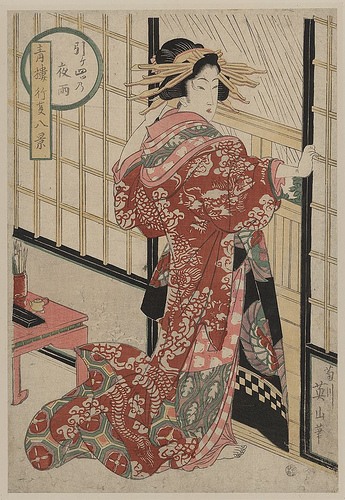
Wake up with gradual, beautiful acoustic chimes. The Zen Alarm Clock transforms your mornings and gets you started right, with a progressive awakening
Dreams are more than just the mini-dramas of your sleeping mind.
Dr. Edward O’Malley, who studies sleep disorders at Norwalk Hospital in Connecticut, says dreaming helps us to process and even memorize information we have encountered throughout the day.
“Even though the situations may be bizarre, there’s a certain logic behind the dream,” he said.
Dreaming also helps to relieve stress and clear the cobwebs from our brains so that we wake up clear and alert.
According to O’Malley, dreams contain a surprising amount of very important content and meaning. He says we should pay close attention.
“While there are general archetype images in dreams like fire and water that mean generic things across the human species, there are very specific cues in your dreams that can give you information that can help you function in the daytime,” he said.
In fact, new research shows dreams help us to solve problems.
“If we have certain conflicts or problems that we may be trying to solve during the daytime,” said Dr. Eric Nofzinger of the University of Pittsburgh School of Medicine, “these problems become reactivated in dreams at nighttime and may get played through.”
Nofzinger’s dream research uses pet scans — an imaging technique — to view the brain’s activity during dream sleep. Remarkably, he has found that the brain’s same emotion centers that are active during the day become active when we dream. Some researchers believe that while we are dreaming, our brains are still working through the emotional conflicts of the day. It is one of the reasons that doctors tell patients to make sure they get enough sleep.
Decoding Dreams
There have been famous examples of people who have dreamed up solutions to problems, said Dr. Deirdre Barrett, a Harvard professor and author of “Trauma and Dreams.”
For example, dreams helped Otto Loewi conceptualize an experiment on a frog heart that later won him the Nobel Prize for medicine and biology. Friedrich August Kekule sorted out the structure of chemistry’s benzene ring in his dreams.

The Zen Alarm Clock's sweet acoustic chimes are truly a gourmet experience
“People are going to dream whatever their background and qualifications, and it’s going to be major scientists who have the Nobel Prize-winning dreams,” she said.
She said that there were some steps people could take to focus their dreams in the right direction.
“The best steps are to write the problem down as a brief phrase of a sentence and have a pad and pen by the bed,” she said.
While you are falling asleep, Barrett said, think of the work that you have done so far in solving the problem and form an image to represent it.
“Artists say they like to set up a blank canvas at the other end of the room to suggest I’m looking for an image to paint,” she said.
Barrett suggested telling yourself you want to dream about the image as you are falling asleep.
“The last step, and this is really important, when you first wake up, stay still,” she said. “Don’t jump up and think about something else because recall for dreams is so fragile that you want to recapture it.”
Know What Is Bothering You
Barrett said that people could help determine the outcome of their anxiety dreams by trying to focus on finding a solution to what is troubling them.
“When you’re trying to solve this kind of open-ended problem, you don’t want to script the ending,” she said. “The whole point is to say I want a solution to X but you want to leave it open for your dreaming mind to come through with the solution.”
Boulder, Colorado—an innovative company has taken one of life’s most unpleasant experiences (being startled awake by your alarm clock early Monday morning), and transformed it into something to actually look forward to. “The Zen Alarm Clock,” uses soothing acoustic chimes that awaken users gently and gradually, making waking up a real pleasure.
Rather than an artificial recorded sound played through a speaker, the Zen Clock features an alloy chime bar similar to a wind chime. When the clock’s alarm is triggered, its chime produces a long-resonating, beautiful acoustic tone reminiscent of a temple gong. Then, as the ring tone gradually fades away, the clock remains silent until it automatically strikes again three minutes later. The frequency of the chime strikes gradually increase over ten-minutes, eventually striking every five seconds, so they are guaranteed to wake up even the heaviest sleeper. This gentle, ten-minute “progressive awakening” leaves users feeling less groggy, and even helps with dream recall.
What makes this gentle awakening experience so exquisite is the sound of the natural acoustic chime, which has been tuned to produce the same tones as the tuning forks used by musical therapists. According to the product’s inventor, Steve McIntosh, “once you experience this way of being gradually awakened with beautiful acoustic tones, no other alarm clock will ever do.”
adapted from abcnews.go.com

What makes this gentle awakening experience so exquisite is the sound of the natural acoustic chime
Now & Zen – The Zen Alarm Clock Store
1638 Pearl Street
Boulder, CO 80302
(800) 779-6383
orders@now-zen.com
Posted in Bamboo Chime Clocks, Dreams, sleep, Sleep Habits